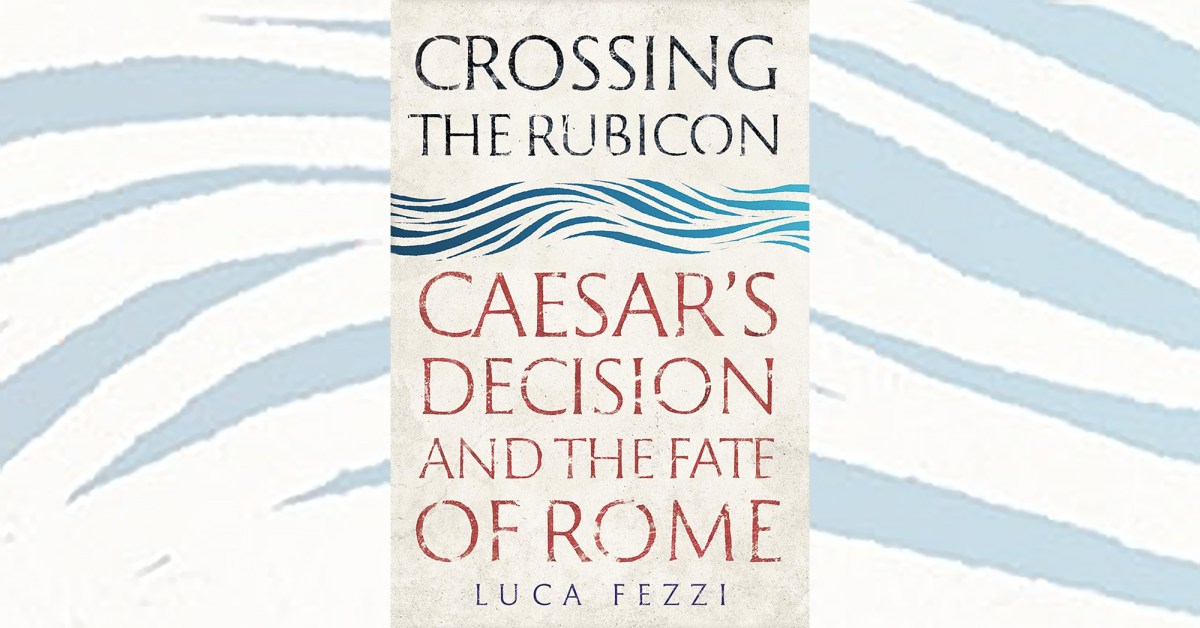Crossing the Rubicon: Caesar’s Decision and the Fate of Rome, by Luca Fezzi, Yale University Press, New Haven, 2019, $35
The world yet lives with the repercussions of the civil war Gaius Julius Caesar precipitated when he led his army across the Rubicon River in 49 BC. That war did more than topple the Roman republic and replace it with a Roman empire. Much of human history to date can be traced from those events. Such titles as emperor, caesar, kaiser and tsar derive directly from the results of the conflict. Even 2,000 years after the fact when people speak of “Crossing the Rubicon” or say, “The die is cast,” the origin and connotation of those well-worn phrases require no explanation.
Luca Fezzi’s fascinating new history of that momentous period argues that the actions taken by Caesar’s rival Gnaeus Pompey Magnus (Pompey the Great) had as much, if not more, to do with sealing the republic’s fate than did those taken by Caesar. In particular the author singles out Pompey’s controversial decision to evacuate the city of Rome rather than defend it. Abandoning the city to Caesar, the author insists, did more than anything else to ensure Caesar’s victory, topple the republic and transform Rome into an empire.
This highly readable yet scholarly work is based on exhaustive research into records and letters that have come down to us from Caesar’s own time, especially those of Cicero (106–43 BC), whom the author describes as an “orator, politician and tireless letter writer.” Fezzi also draws on the opinions of other Caesarian scholars, including one with imperial ambitions of his own named Napoléon Bonaparte. This volume will undoubtedly prove of great interest to all historians, whether military or otherwise.
—Robert Guttman





